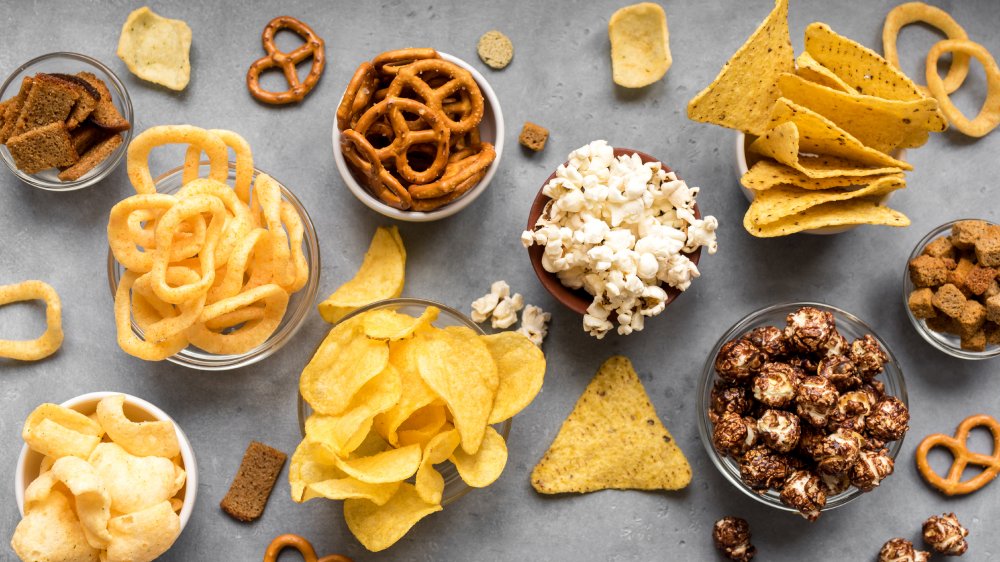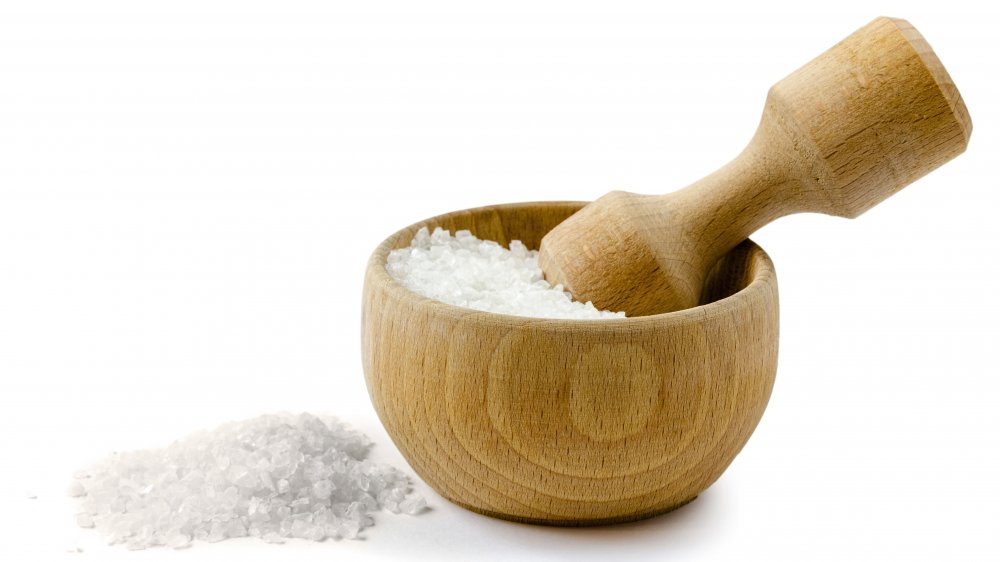The Real Reason You're Craving Salty Foods All The Time
Have you ever felt the urge to grab a bag of potato chips or popcorn for no good reason? Have you picked the visibly-salted french fries with your fast food meal over alternatives? Salt cravings are not uncommon, so you may be wondering what they really mean.
Adequate salt (sodium chloride) concentration in the body is necessary for proper muscle function, nerve impulse transmissions, and the ability to maintain the proper balance of bodily fluids (via Harvard Health Publishing). Thus salt, in moderation, is necessary to maintain bodily homeostasis. The 2015 to 2020 Dietary Guidelines for Americans recommend consuming less than 2,300 milligrams (mg) per day, however, it is estimated that most Americans over the age of 2 consume greater than 3,400 mg/day (via Mayo Clinic). Excess sodium concentrations in the body are known to increase blood pressure, increasing the risk of developing heart and kidney disease, congestive heart failure and even stroke (via Centers for Disease Control and Prevention).
The main dietary sources of salt are processed foods, restaurant meals, and comfort snacks — all common staples in the American diet. That's why it's important to understand what those salt cravings mean in the first place. While there is a multitude of causes of food cravings, here are some of the more common ones.
Common causes of salt cravings
Stress is one reason you might be craving salty foods. Experiencing stress often drives us to seek familiar comfort foods, which tend to be high in fat, salt, and sugar. If our body is already used to consuming a high salt diet, it's been conditioned to seek more of what it's used to getting.
In addition, the adrenal glands, located atop the kidneys, are responsible for releasing cortisol, the stress hormone. Elevated levels of sodium in the body are known to increase cortisol levels, which in turn may lead to more stress and the increased desire for salty foods (via Well + Good).
Dehydration can also cause you to crave sodium. Whether it's due to a lack of fluid intake, vomiting, pregnancy, or something else, dehydration could be driving the desire for more salt, in addition to symptoms such as dizziness, increased thirst, headaches, and more (via Healthline).
Are you sweating a lot? That could lead to a salt craving, too. Our sweat naturally contains salt, so those who sweat excessively tend to experience lowered sodium levels. That craving may be the body's way of communicating that salt levels need to be replenished.
Also, thyroid or kidney diseases may be to blame. Most often, salt cravings are benign. However, if accompanied with other symptoms and changes in the body, they may be an indicator for conditions such as Addison's disease or Bartter syndrome.
Barring the occasional indulgence of salt cravings, it is important to make a conscious effort to decrease dietary salt intake. If you begin experiencing other symptoms or notice an unusual increase in cravings, it is recommended to consult your regular healthcare provider.


